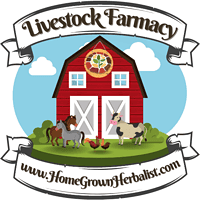Doc's Blog!
The New Mystery Disease In Dogs: What You Need To Know
A New Disease Syndrome!
A new disease syndrome in dogs has recently emerged in the United States. Cases have shown up in several states and it’s likely to spread quickly. The illness is characterized by a severe, hacking cough much like Kennel cough but much more serious. Infected dogs also tend to run a fever and may have nasal or eye discharge and may show signs of low oxygen like cyanosis (blue gums and tongue) and lethargy. The disease often quickly progresses to pneumonia and has a very high fatality rate.
What Causes it & Where Did It Come From?
Researchers haven’t yet identified a causative agent and labs are vigorously looking for the culprit. I received an email this morning from the State Animal Disease Diagnostic Lab requesting that I (and every other veterinarian in the country) send them tissue samples (lung, tonsil or lymph node) or swabs from infected dogs for analysis. What does that mean? It means it’s a real problem and not just some nonsense that bloggers and YouTubers are blathering about.
So, how does this sort of thing happen? Well…It just does. Microorganisms like bacteria and viruses reproduce at an astounding rate. Occasionally, one of those babies has a mutation that is very successful. In the 1970s, a new disease called canine parvovirus exploded onto the scene. Within a couple of years of its appearance it was killing millions of dogs worldwide. There were several other animal species that had their own versions of parvovirus (mink, pigs, etc…). The canine parvo is believed to have been a mutation of a cat parvovirus called feline panleukopenia. Another spontaneous mutation was canine influenza virus (H3N2) which showed up in Chicago in 2015. That virus likely started as a horse influenza and mutated so that it could infect dogs. The first cases were in South Korea and China. It came to the United States after a large dog show in Chicago. Within months, it was in every state in the nation.
This new situation is a bit different. In the canine parvo and canine influenza cases, the causative organism was identified very quickly. This new syndrome hasn’t been as easy to sort out. There certainly is a causative agent because the syndrome is highly contagious. So, something is being transmitted. I used to work at the Utah State Animal Disease diagnostic lab doing microbiology…so I have some experience with isolating and identifying bacteria and viruses. If this were just a bacterial pathogen, chances are good that they’d have found the bug quickly. If it’s a spirochete or Mycoplasma or some other more unusual microbe, it might take a bit longer to find…but not much. Viruses are a little harder to isolate and identify but even so, it shouldn’t take long.
So why can’t the researchers find anything yet? Well there are a couple of possibilities. One is that it’s something completely new and they don’t have a good test to identify it yet. Another possibility is that it’s an organism that is very short lived that does it’s damage quickly and then expires leaving little or nothing for scientists to find. The third and most likely possibility, in my opinion, is that it’s not a single organism. Sometimes the presence of one microorganism facilitates the ability of another to do damage. For example, people don’t usually die of the AIDS virus. They typically die of some other infection or cancer that the AIDS virus kept their immune system from fighting. Many of the dogs dying of this new syndrome are contracting a serious pneumonia and dying of that. Pneumonia is often caused by opportunistic, secondary infections that have nothing to do with the original pathogen that weakened resistance or stressed the lung tissues initially. For example, you get a little bronchitis from one bug and then catch pneumonia from a different one because you were worn out by the bronchitis.
What Can We Do?
Well let’s start with prevention. We know it’s contagious. So, the best way to avoid it is to keep your dog away from other dogs. Dog parks, groomers, boarding facilities and even veterinary clinics are places that your dog might meet lots of other dogs. We don’t know if it’s spread by direct contact or if it’s airborne but, either way, minimal exposure to other unknown dogs is a good idea. Keeping your dog vaccinated against kennel cough, canine influenza and parainfluenza (parainfluenza is usually in the Distemper/parvo shot) may also be helpful. None of those diseases cause this syndrome but catching any of them may weaken the dog enough to allow this new bug to get an easier foothold. I know that some folks have strong feelings about vaccines. And I think some of those feelings are justified. For humans, the risk of catching or experiencing the disease prevented by the vaccine is sometimes less severe than the possible risk of the vaccine itself. But humans don’t go around licking the noses and sniffing the cabooses of people they don’t know and exploring everything in the world with their mouth. Get your dog his shots.
What About Herbs? Will Those Help?
They might help a lot. And, in fact, if my dog were to come down with this syndrome, that’s what I would use. Because it’s contagious, we can know that this disease is caused by a microorganism of some kind (or of more than one kind). So, what I would do is approach it from several angles. The first thing I’d do is stimulate and support the dog’s immune system (have a look at the herbs in the Immunity Support formula). I’d also use some herbs that have good antiviral activity (see the Shoofloo formula) and since it could also be a bacterial pathogen (or one of the bugs like that) I’d use some antibiotic herbs as well (have a look at the BugBuster formula’s herbs). If the dog was sick I’d use all three of those several times a day. If the dog was exposed to sick dogs I’d do the same thing.
The easiest way to get herbs into a dog is by mixing the powder with a little wet food. Tinctures are fine as well. Dosing instructions are in the info & dosing tab of each product page of Homegrownherbalist.net. All of the herbs above (and several others) are in the Livestock Farmacy Kit.
You could also use herbs for the other symptoms of respiratory disease the dog may experience. There are herbs to help with coughs (Respiratory COF), excess mucus (Respiratory EXP), opening the airways (Respiratory AZMA) and several other respiratory issues. Have a look at the formulas in the Respiratory Preparedness Kit. There’s also a link on that page to a downloadable document explaining my various respiratory formulas and how I use them. All of the formulas in that kit are safe for dogs. I’ve been using them for years.
Conclusion
So there you have it. As more information becomes available, I’ll keep you posted. But regardless of what pathogen they identify, I doubt very much that my approach would change. Unless they find it’s being caused by grumpy alien cats from outer space shooting our dogs with an infecto-matic ray gun from their space ship. I don’t have a good herb for that.
If you’d like to learn more about herbal medicine from a crazy veterinarian and naturopath that understands disease processes and how herbs interact with humans and critters and their various ills, have a look at the HomeGrown Herbalist School of Botanical Medicine. We’d love to have you join us.
















Of course you have a herb for the grumpy alien cats, CATNIP.
Eureka! I hadn’t even thought of that! LOL
What can I do for a young feral cat who is friendly but struggling w a bad case of diarrhea, it’s been going on 4 or 5 days?
Have a look at this one: https://homegrownherbalist.net/search-results/?q=dire
I have a grumpy cat….pretty sure it’s not an alient, but who can know for sure with cats?? If he ever got his paws on an infecto-matic ray gun, the whole world would be in trouble!
As always, love your knowledge and wisdom and sense of humor!
What “new dog shots” are those?
Thank you so much for this information! It is so appreciated. I am not aware that any of the basic shots for dogs are new. I am very careful of vaccines but I do vaccinate my dog for these things, I just make sure to space them out.
Spacing them out is a good idea. Do the first one and the booster a few weeks later and then one at a year. After that, I’d spread them out a few years. Dogs are being way over vaccinated in my opinion. Some vets can test antibody levels to see if the dog needs boosters or not.
Great information. Thank you. Unfortunately, our two dogs are not up to date on vaccines, but it sounds like it would be safer to just continue to stay at home with them. Our three acres gives them plenty of their own space and we usually take them out on a leash. I wouldn’t want to risk a trip to the vet right now. Thanks again!
If they have no exposure, they have no risk.
great information, Thank you !!
I think Dogs Naturally magazine would be incorrect about that for several scientific and biological reasons I don’t have the space to get into here. It’s vastly more likely that the virus mutated in a cat (or mink or pig or other parvo carrier) and jumped to dogs.
We have dogs in my neighborhood that are puking then seising then dying…. One of mine but she was messing with a cane toad (actually ate the poop) I personally think with the drought we had that cane toads are getting in the dogs outside water. Some think poison but these dogs are in fenced yards.
Some toads can be pretty toxic.
Is it just called “ The Mystery Disease”? They don’t have a name for it yet because there’s so little known about it?
So this is not a good time to adopt a dog from a shelter, is it? But if you did bring one home that seemed fine, how long would it take to know if he really was okay?
Yup. We’re still pretty clueless on what’s causing it. Most diseases have an incubation period of less than 3 weeks. So if your pup hasn’t gotten it by then, it’s probably not going to.
I thank you for the information. My dog came down with something. He had a cough, not constant just every so often on a daily basis. I tried to get him into the vet. That is another story. He seemed okay other than the cough. On Thanksgiving he passed away. I wish I knew what it was. I have two other dogs that are perfectly fine so I have no idea what got him. It was fast. Thank you for all you do for us, Doc.
Older dogs with coughs that don’t have a bug, usually have congestive heart failure.
Hi Doc, will these same herbs help dogs with congestive heart failure? You’re not only a very smart cookie, but you’re an absolute hoot!
No. That’s a completely different condition. Shoot me an email.
Hey Dr. Jones, your posts are amazing! This is so good to know! I don’t have a comment about my dog, but I have a question about my son. Do you have an email that you give out to people? Thank you so much!
i am so sorry for your loss and so suddenly. and not being able access medical care didn’t help. we have similar situation here in northern VA.
On the 22nd of this month I had to take our youngest dog to the animal hospital for an allergic reaction. Is it possible for for old dog to get the illness and not the young one?
I haven’t seen any data on ages of animals affected.
Thank you for this blog. We have our dog on Doc Jones “immunity support” powder and “histamine powder”. Second one for fall allergies. Just ordered the “respiratory COF” powder as well to have on hand. He gets a little bit of elderberry syrup and a quarter clove of garlic fermented in raw honey.
Thank you Dr. Jones for taking the time to give us valuable information.
The herbs mentioned in the video… should one know the energectics of their dog before using?
I wouldn’t worry about it. I’ve seen them work on about any dog.
thanks for sharing.
guess am not taking my year old Canaan back to doggy day care anytime soon. He did great at age 5 months but in just a 6 hour visit, he contracted Kennel Cough despite having the vaccine. he had a mild form, but i had to keep him separated from my senior pup until he was no longer sick, that was quite a challenge.
i do hope there is a solution soon. very scary and not even homeopath seems to dent these recent illnesses going around. i had walking pneumonia and none of the homeopath helped with symptoms like usual. needed an antibiotic finally made a dent.
Thanks for the info, Doc!
It feels good to be ahead of the curve on this.
BTW, put my dog on the joint support powder, and she’s her old mean self again!
I think what I had her on before was making her extra sleepy. It worked for her joint pain, but she seemed tired all the time.
Your formula got her up and herding my other dog again. Ole meanie that she is 🙂
Glad it’s helping.
Any advice for those of us who still have to use groomers or other areas where dogs will be exposed? Maybe a proactive formula to boost their immune system?
I’d use the formulas mentioned in the article
I’ve slowly been trying to get my whole family healthier, dogs included. Have been switching to herbals and natural supplements for myself, and have just finished weaning my dogs off kibble and onto a more dog-appropriate diet. We don’t go to dog parks because my big gentle giant gets attacked. Guess it’s a good thing.
Could it (originally) be from biologics gone awry after eating a modified food source? After hearing from Doc Jones that cats only eat actual food they can identify… I used his logic at home in an interesting situation. I bought a rotisserie chicken cheap. I thought hmmmm how can a chicken be that cheap but whatever, the skin will be crispy and great and I can share it with my critters. I took it home, offered some to our indoor cat – not interested, out door cat – not interested then finally to my dog who will eat her own poop and go on Viking like pillages to find horse manure, dead things… etc. to consume. Well, when she didn’t eat it and walked away, that was an eye opener; the chicken went in the garbage and I ended my relationship with Sam’s club. We are living in a unique world. In the words of Joel Salatin, “Folks, this ain’t normal.”
Thanks for the info!
Question: Would you recommend we stop taking our dogs on walks in the neighborhood and on public hiking trails while this mystery illness is going around? (It’s in our state, CO) When we cross paths with other dogs being walked, we don’t let them greet and smell each other. We sometimes come across a random dog or coyote pile on or next to the sidewalk or path, and we try to pay attention and not allow our dogs to smell it.
Until we know the causative organism we won’t know how long it can persist in the environment without a host. Chances are it’ll be a direct transmission situation but time will tell.
This blog post is wonderfully timed as I was just wondering about herbs and rabies. Have you ever attempted to treat an animal for rabies with herbs? Or is it a lost cause no matter the attempted treatment?
There isn’t an herbal or pharmaceutical treatment for rabies. There are antibody preparations for human use that can be injected to prevent it in cases of exposure, but once it’s established, it’s a death sentence.
After reading about this several months ago we lost 2 of our older dogs to it. The article warned about not allowing your dogs to eat “the black poison laying on the ground”. Meaning droppings from other animals, not just dogs. Our dogs are in our ranch of 455 acres. I had observed couple of them doing just this but from wild animal droppings. They are dead and buried but now we are applying your advice to 3 other older dogs. So, this disease is among the wildlife in West Texas.
I need help with a dog with lymphoma. Can you help me? Is there herbal medicine to treat it? She was given 6 weeks to live and we just found out a couple of weeks ago…
With Lymphoma that advanced, it’s unlikely that herbs will change things much. I’m sorry you’re having ot go through this.